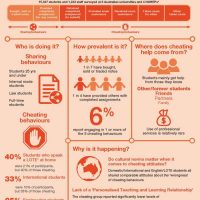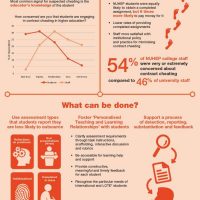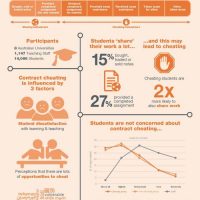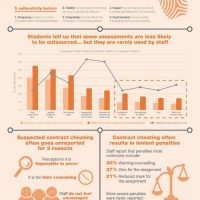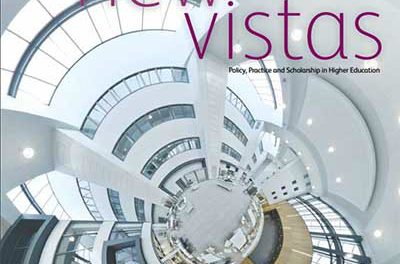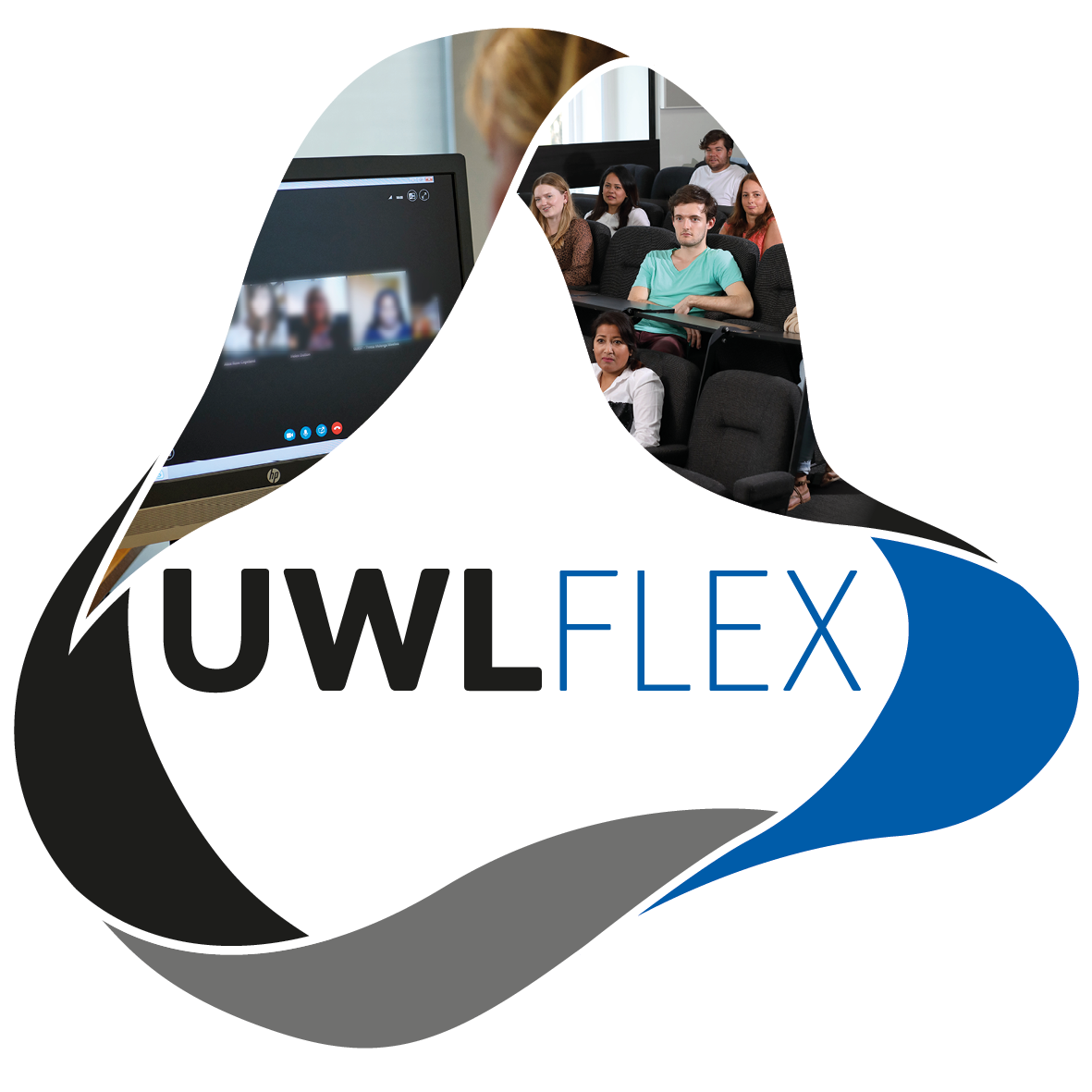Report from the Turnitin Academic Integrity Roadshow
King’s College London hosted a Turnitin event on 5 February for their customers. It was attended by around 40 learning technology and teaching staff.
Contract Cheating
The main session was an illuminating talk by Cath Ellis who provided an introduction to contract cheating, her experience at the University of New South Wales and research from the contract cheating and assessment design project.
Contract cheating is the use of third parties to produce assessed work for students. Definitions have tended to focus on paid-for contracting by so-called ‘essay mills’ but Cath used a broader definition which reflects one of the main takeaways from Cath’s talk. Research has shown that while essay mills are significant, the vast majority of contract cheating involves other students, friends, partners and family.
There are many insights in the research of the Australian contract cheating project and it is worth reviewing the easily digestible infographics.
- 2017 Preliminary Findings (Page 1)
- 2017 Preliminary Findings (Page 2)
- 2018 Preliminary Findings (Page 1)
- 2018 Preliminary Findings (Page 2)
PDF versions: preliminary survey findings (2017) and additional survey findings (2018).
The research has suggested that work supporting and educating students is likely to be more effective than assessment (re)design as the majority of coursework, including reflective pieces, can now be outsourced. See: Assessment design won’t stop cheating, but our relationships with students might.
Cath Ellis also introduced us to the murky business models of essay mills, see her latest research: “The infernal business of contract cheating: understanding the business processes and models of academic custom writing sites”, which highlights complex businesses and services. The biggest sources of contract writers are Kenya, the Phillipines, Ukraine and India. In her talk Cath highlighted forums such as Essayscam where services as openly discussed.
Turnitin Product Updates
The main announcement from Turnitin was their forthcoming Authorship Investigation tool which is designed to assist in the identification of contract cheating. The tool compares a student’s submission with work previously submitted. It provides a report based on 4 elements:
- Readability score
- Document meta data
- Stylistic Features
- Machine Learning Prediction
As with the Turnitin Originality tool, the reports will help staff form a judgement. A beta version of the tool is expected this summer. The use of tools such as this was one of the recommendations in the Contracting to cheat in Higher Education QAA report, October 2017 and its future launch made the Times Higher Education and the Telegraph: New university plagiarism software to be launched in crackdown on ‘contract’ cheating.
Turnitin also announced a new code checking tool coming soon which will allow originality comparisons of assignments featuring computer code.
There was also a talk on VLE integrations covering Blackboard, Moodle & Canvas. Unfortunately the time spent on Blackboard missed the mark with a focus on Blackboard Ultra (a new version of Blackboard, not yet adopted in the UK and unlikely to be implemented by many for 2018-19). However I raised the ongoing problem of Turnitin Assignments not appearing in the current Blackboard App. Since then we have had a very positive follow-up call with Dan Tidmas, Integrations Product Manager and with concerted pressure from the community progress is expected soon: Displaying Turnitin Due Dates – Update (at last!).

